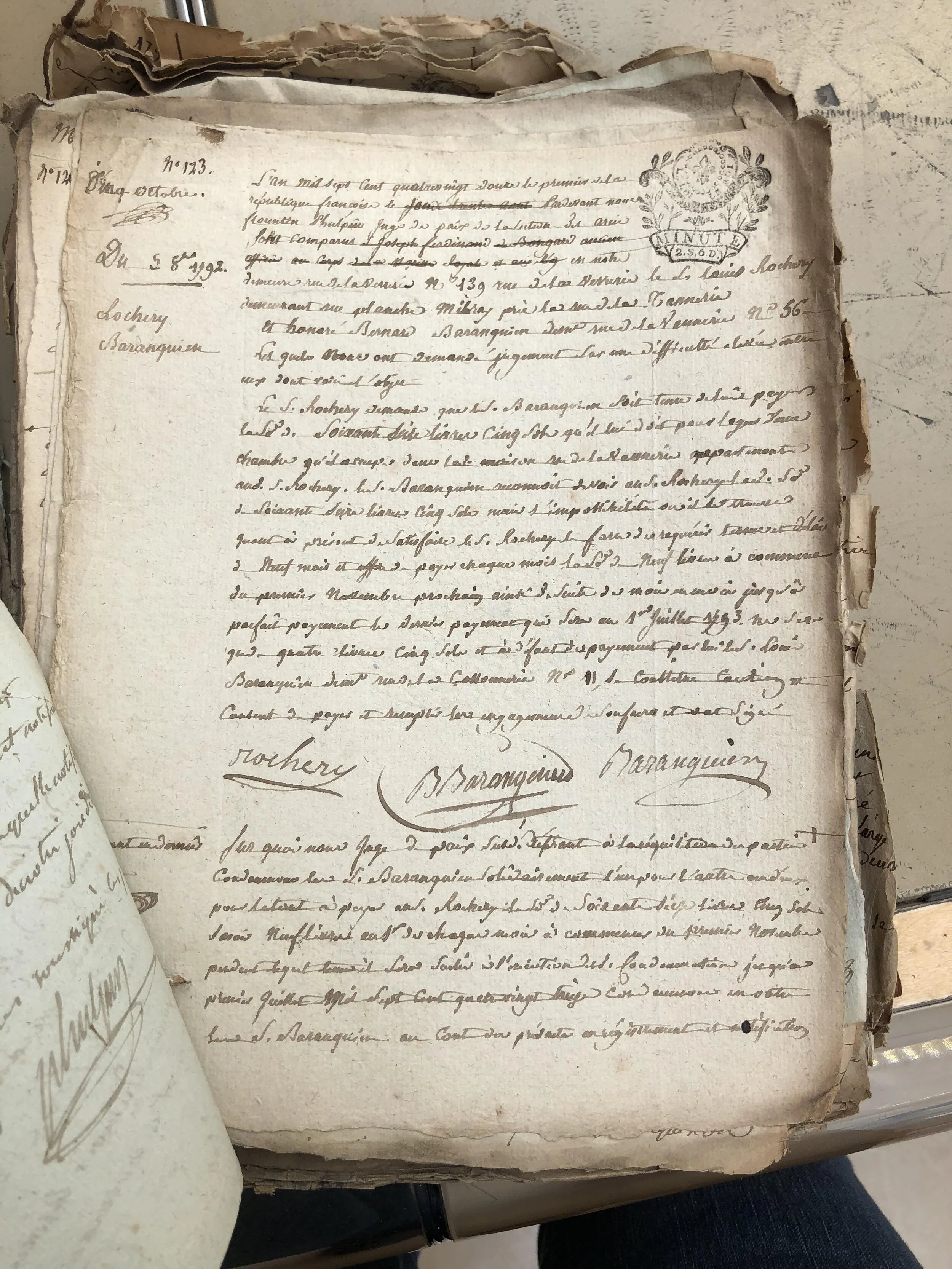A “voluntary judgment” between two citizens in 1792. Through this new procedure at the revolutionary justice of the peace, neighbors cooperatively sought a ruling on a civil dispute from their elected judge. For the first time in modern French history, individuals could judicially resolve their disputes in a nonadversarial fashion and could jointly invite the state to facilitate their compromises.
My current book project, Democratizing Forgiveness in Revolutionary France, 1789-1799, analyzes how the French revolutionaries refashioned forgiveness in institutional forms. It argues that, amid conflict, the French Revolution forged modern politics and society by reinventing reconciliation. This project reveals how the revolutionaries enacted a cooperative social contract through new restorative judicial practices, religious beliefs, economic relations, and political imaginings. It explores how citizens repaired broken bonds by arbitrating local disputes, forgiving personal loans, and settling commercial debt in court. It also considers how citizens reconceptualized reconciliation through sacramental confession, innovative religious cults, and the education of youth. In analyzing these everyday practices, my research reveals how women and men seized the tools of the revolutionary state to forge their own visions of the new body politic and of how citizens should interact within it. Democratizing Forgiveness thus demonstrates how, through quotidian relationships, revolutionary forgiveness became both a brake on conflict and a motor for change. This project has been supported by an ACLS Fellowship and an NEH Fellowship.
